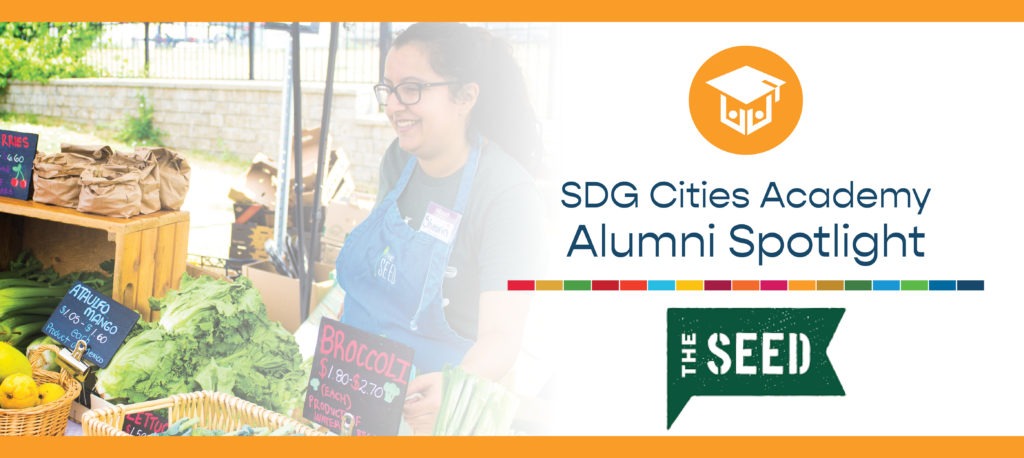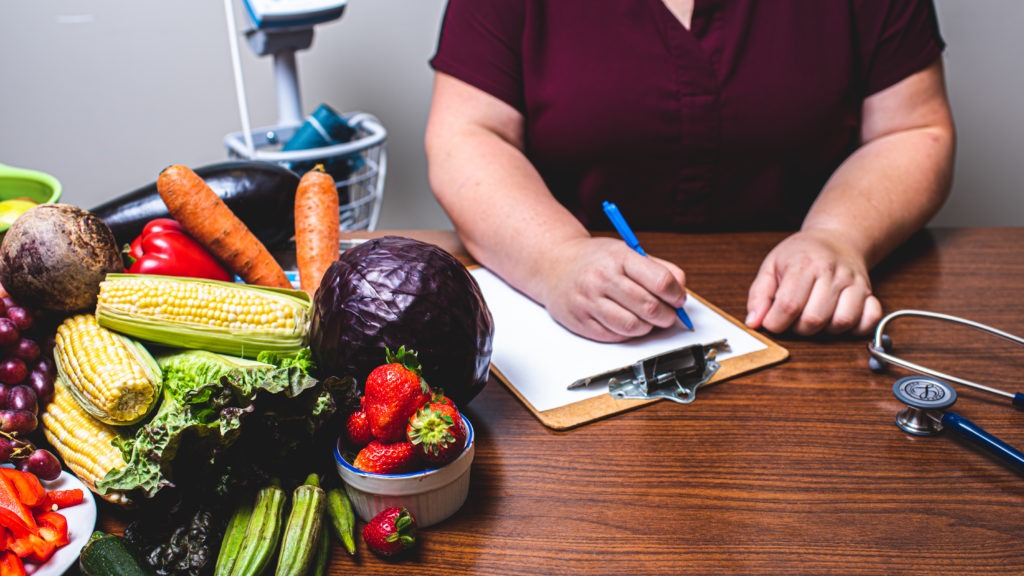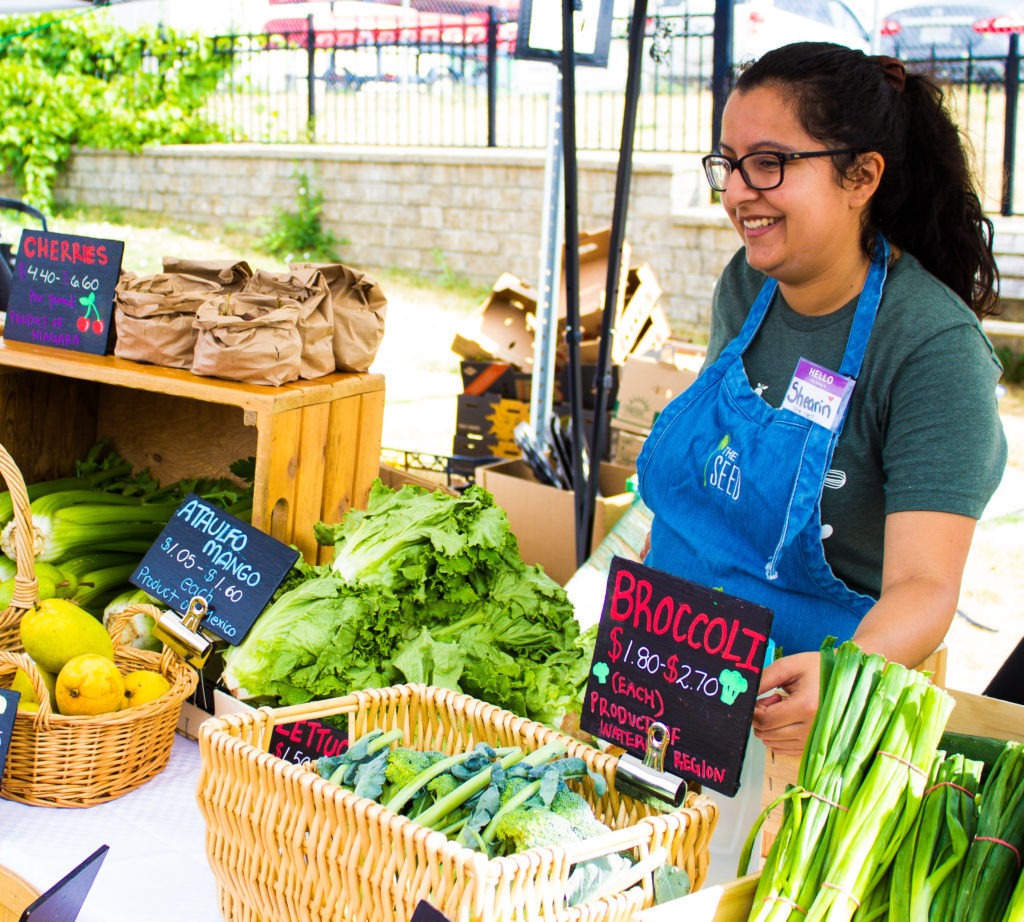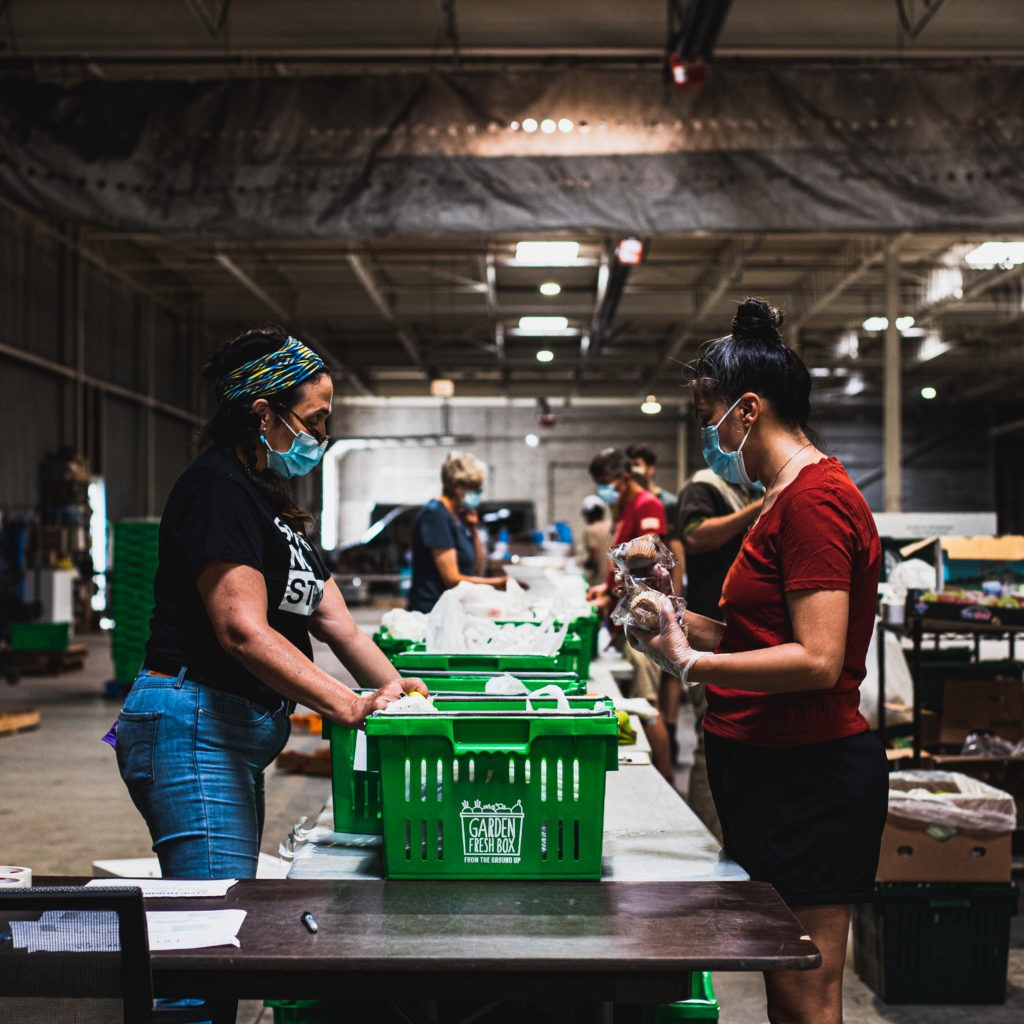The SEED: Building a New Kind of Food System

The SDG Cities Academy is a supported, peer-to-peer training opportunity developed and delivered by SDG Cities. The course offered organizations, businesses and individuals a chance to deepen their knowledge about the SDGs and learn how to apply the principles and practices of the framework at the local level. As part of the training Academy participants explore alignment of their work with the SDGs and dig into their local impact.
The SEED, a project of the Guelph Community Health Centre (GCHC), is a food movement that brings together diverse partners and community members to help build a new kind of food system in Guelph-Wellington.
Reliance on global, industrial food systems drives challenges experienced locally. An estimated 14% of households in Guelph and 9% of households in Wellington County face food insecurity 1. Issues such as economic inequality, poverty and precarious work are some of the driving forces behind food insecurity experiences locally.
As a project of the GCHC, The SEED maintains a strong connection to the big picture of improved community health. While programming at The SEED is focused on food system interventions to address food security – their multi-pronged approach considers a broad spectrum of social determinants of health and builds community capacity to address root causes.
Since The SEED was established in 2015, they have been growing their program and social enterprise offerings to fill local gaps, driven by the long-term goals of addressing poverty and improving health and well-being. Programs and social enterprises from The SEED have included:
- Good Food Distribution: A community embedded warehouse, storing and distributing fresh food to food banks and pantries and student nutrition programs.
- Garden Fresh Box: A monthly affordable box of fresh produce distributed through neighbourhood pickup points.
- Community Food Markets: An innovative, welcoming sliding-scale mobile produce market which encouraged people of all incomes to shop together weekly in five different Guelph neighbourhoods.
- Guelph Youth Farm and the Good Food Project: A partnership with Everdale Community Farm which trained (and paid) young people to learn and connect by growing food while improving access
- FoodFit and other community kitchen programs: A series of best-practice, health-improving food workshops to increase learning and connection around food.
- Upcycle Kitchen: A social enterprise that employs young people to take food that would be wasted and turn it into high-quality value-added products (which are then sold on a sliding scale).
A Community-Driven Approach to Zero Hunger
In 2018-19, The SEED won the Transformative Change award from the Alliance for Healthier Communities and the Innovation Award from the Guelph Chamber of Commerce in recognition of their fast-growing and forward-thinking program suite.

The Covid-19 pandemic brought new food security challenges, particularly for already vulnerable residents. In response, the SEED quickly pivoted operations and began the Emergency Food Home Delivery program. Between April 2020 – April 2021, approximately 80,000 prepared, frozen meals were delivered to community members, with 277 volunteers logging over 15,000 hours. The program, which engaged many community partners, aimed to address short-term food access challenges brought on by the pandemic.
Learning from this program and past ones like the sliding-scale Community Food Markets, plans for a new social enterprise emerged. Groceries from the SEED (GFTS), launched in 2021, is an online grocery store and home delivery service designed to increase access to fresh and healthy food for everyone in Guelph-Wellington. Customers choose to pay retail price, or receive a discount membership based on what they can afford. An alternative to charitable food programs, GFTS aims to operate as a financially sustainable, scaleable and replicable social enterprise providing dignified access to high quality food for all, regardless of income. GFTS is for everyone, living the values of their tagline “it takes a community to feed a community.”

An evaluation of the GFTS pilot period found customers with discount memberships worried less about where and how they would access food, had less financial stress, and experienced less stigma around their food access needs 2. With over $600,000 in collective grocery bill savings for discount members so far, GFTS, has demonstrated success in improving financial and physical access to food. The program is still growing, making their 10,000th delivery in April 2022.
Circularity in Community Food Programming
A close partnership between The SEED and Our Food Future, Guelph and Wellington County’s Circular Food Economy project, has also had an impact on incorporating circular food principles into their community focused work. Circular food systems are ones that prioritize regenerative practices, reduce inputs and resource use and ensure resource recovery wherever possible.

Funding and other support has helped The SEED think about ways to address waste and promote circularity when possible. For example, Groceries from The SEED has worked to support a shift from plastic bags to paper and reusable thermal bags, significantly reducing waste in the warehouse. The Upcycle Kitchen is another example of circular thinking as the SEED continues to tackle food waste, improve food access, and provide employment opportunities for youth in the kitchen. A new partnership with Friendlier promotes reusable packaging, further expanding the Upcycle Kitchen’s goal of reducing waste in the food system.
A Community Food Economy
At the heart of The SEED is the Community Food Warehouse, a key piece of food distribution infrastructure in Guelph. With its 1500 sq ft cooler and 750 sq ft freezer, the warehouse receives and stores food for all of The SEED’s work, and that of several other local organizations. In 2021, an estimated $1.5 million of fresh food moved through the warehouse for The SEED’s programming alone.
The warehouse not only supports local food access, but is also helping to build a stronger local food economy by supporting local food programs and likeminded businesses whenever possible. As an example, the warehouse provides storage and distribution infrastructure for the Indigenous Food Collective led by Nookomis Carol Tyler. This project distributes healthy, traditional foods to Indigenous community members promoting food security, health, cultural connection and overall wellbeing.

The SEED relies on many volunteers and creates employment opportunities for people under the age of 30 who are not in education, employment or training (NEET). For these individuals, the opportunity to work in a social enterprise provides valuable work experience and skill development, improving their chances of finding other employment after their contracted time with the SEED ends.
In Guelph-Wellington The SEED is part of a larger food ecosystem focused on increasing access to food, decreasing waste and promoting inclusive economic growth. The SEED was founded out of community partnership, and working with other organizations to improve broader outcomes together remains core to its work.

Through participation in the SDG Cities Academy, SEED Assistant Jude Keefe connected with other food-focused organizations in the region learning about how they can advance the SDGs through their collective work. Jude imagines a future where the SDGs could be a useful shared language for these groups.
“Organizations promoting food access in Guelph were able to collaborate on idea generation to explore standardized metrics to compare progress towards the SDGs and track the communal move toward impact.”
– Jude Keefe, SEED Assistant and SDG Cities Academy Participant
Supporting The SEED
Order from GFTS and shop meals and baked goods from the Upcycle Kitchen!
Donations of money and/or time are equally appreciated – all hours and dollars contributed to the projects of The SEED social enterprise are vital to keep the program operating. Find out how to donate or Apply online to volunteer with the SEED today! For those interested in how data is being used to build stronger more connected food systems, check out datahub.foodfuture.ca for map based data visualizations of the local food system in Guelph-Wellington.
Follow The SEED:
Twitter: @seedguelph
Instagram: @seedguelph
Facebook: https://www.facebook.com/seedguelph/
References
- Our Food Future, Wellington-Dufferin-Guelph Public Health, & Toward Common Ground. 2021. “How COVID-19 impacted food access and food insecurity in Guelph and Wellington County.” https://foodfuture.ca/post/how-covid-19-impacted-food-access-and-food-insecurity-guelph-and-wellington-county
- Taylor Newberry Consulting. 2021. Groceries from the SEED Evaluation Report. https://theseedguelph.ca/wp-content/uploads/2021/11/2021-10-18-Groceries-from-The-SEED-Evaluation-Report-1.pdf

